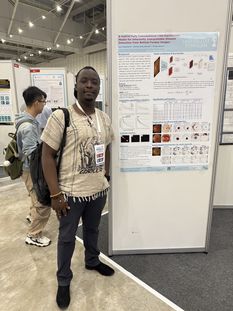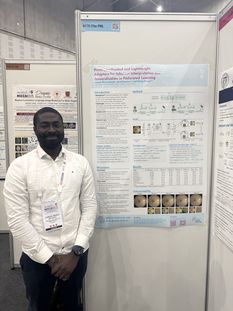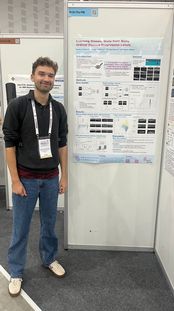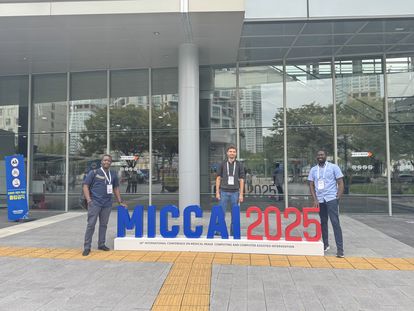Hertie AI at MICCAI 2025
Three people from the Medical Imaging Group of the Data Science Department had the privilege of attending the 28th International Conference on Medical Image Computing and Computer-Assisted Intervention (MICCAI), held in Daejeon, South Korea, from 23 – 27 September 2025. This was the first time MICCAI took place in Korea, and Daejeon – often called the nation’s “Silicon Valley” – proved to be a fitting host city. With its dense network of universities, research institutes, and high-tech industries, the conference organisers emphasised this synergy, positioning MICCAI 2025 as blending tradition and innovation.
The five-day program featured two days of satellite events, scheduled at both the beginning and end of the three-day main conference. Attendees enjoyed a rich mix of keynotes, oral sessions, and lively poster presentations, providing a platform for sharing ideas. The satellite programs included tutorials, technical workshops, competitive challenges, and poster sessions. All these were complemented by industry exhibitions and networking events that encouraged collaboration between academia and industry. Among the memorable moments were an oral presentation delivered by an undergraduate student and a surprising workshop on dental imaging datasets – a clear reminder of how far-reaching artificial intelligence (AI) applications in healthcare have become.
This year’s conference was centred around two themes: “From Concept to Clinical” and “Pan-Asian Connection”. This deliberately pivoted toward bridging the gap between methodological innovation and real-world impact, while spotlighting unique challenges and opportunities of medical AI across Asia. Together, these themes underscored the conference's direction toward global collaborations and accelerating AI technologies in healthcare within Asia and beyond.
We were proud to contribute to the program, with two poster papers accepted at the main conference [1, 2] and one workshop paper [3], which was presented both orally and as a poster. It was interesting to see several papers in a similar direction, reflecting current focus areas in medical AI research. Dominant themes included large multimodal models, generative models, and deep learning applications in surgical settings.
Beyond the conference, we took the opportunity to explore South Korea. Highlights included visits to cultural landmarks, sampling traditional cuisine, and experiencing both modern and traditional Korean culture – from a gala night featuring K-pop bands and acrobatic dance performances to trying on Hanbok, Korea’s traditional attire. The experience captured the country’s unique balance of heritage and modernity.
Overall, MICCAI 2025 was both professionally enriching and personally memorable. With the next conference set to take place in Abu Dhabi, United Arab Emirates – the first MICCAI to be hosted in the Middle East – we look forward with anticipation to another milestone gathering of the global medical AI community.



